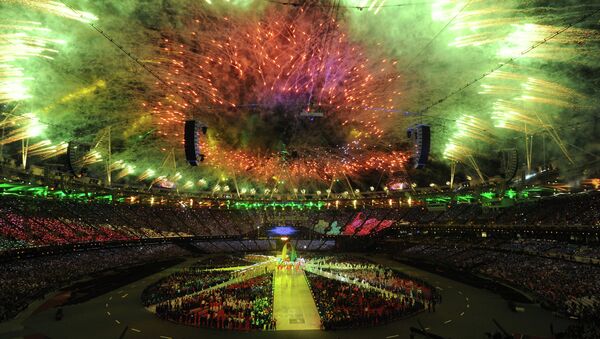Manchester's successful 2002 Commonwealth Games, held in Manchester 25 July to 4 August 2002, were the UK's largest sporting event before the 2012 London Olympics, with 281 events across 17 genres of sports.
The games were widely seen as a testament to Manchester's success following the 1996 Provisional Irish Republican Army bombing, which injured 212 people but resulted in no casualties, and led to the city's regenerative and urban renewal efforts, boosting its reputation globally as a major European cultural and economic powerhouse.
But efforts to secure the nomination were overshadowed by deep political divisions between oversight committees and departments within the UK government leading up to victory, leading to disagreements over funding sources and management of the project. The developments arose after several failed bids for the Olympic Games and doubts over the profitability of the Commonwealth Games were voiced by UK officials.
Manchester's 2002 Commonwealth Games Bid
Fears over Manchester’s 2002 Commonwealth Games bid were due to the UK “living off past glories” by failing to remain competitive, according to government sources.
Concerns over Manchester’s bid for the Commonwealth Games arose after Mr Adams offered “diplomatic and promotional support” to then-Olympic Bid Committee chairman, Sir Bob Scott, but stated that it should be “clear” that National Lottery funds would not be guaranteed to fund the bid.
Further meetings with Sir Scott and Graham Stringer MP were held on 25 May to reiterate these concerns.
Building two stadiums for the event would cost the Manchester City Council around £150m, with £40m from the private sector and the Council seeking a further £75m from National Lottery funds, which were not guaranteed.
“The strength of government support ensured that the bid was both serious and credible,” Mr Adams said, adding that funding provided for [Manchester] Arena, Velodome and Stadium site had been “a clear signal of intent” and “indicator of our ability successfully to deliver the Games”.
Merseyside's Battles: From Olympic Games to Commonwealth Games
Manchester’s further bid for the 2000 Olympic Games had added problems, with a UK government spokesperson stating that the city’s failures were due to the UK's waning “position and influence on the international sporting map” and that the UK was “living off past glories” by failing to keep pace with the rest of the world.
The International Olympic Committee (IOC) also voiced concerns that the UK “had difficulties in demonstrating that British sport possessed a coherent infrastructure of modern sports facilities”, according to the documents.
Manchester’s battle for the bid was met with consternation from Tory MP Damien Green, who stated that “no one in their right mind would spend 3 weeks in Manchester rather than Sydney”.
— JOHN ROBLES (@jrparser2232015) July 18, 2019
A PM spokesperson lamented that the UK held an “unexceptional” history of hosting European events and that Britain’s “on-track performances were viewed as good, but not spectacular”, adding that the UK lacked influence among sporting bodies such as the IOC and others.
Manchester’s failure to have bid members with a sporting background, as well as the city’s “unglamourous image” due to “saturation lobbying” under Sir Scott were “never wholly overcome”, the spokesman said.
The British Olympic Association (BOA) also warned that in further bids, London would be chosen over Manchester – realised later after the capital city had won its 2012 Olympic Games’ bid.
Remedies For Failed Bid
The BOA advised Manchester to avoid bidding for a fourth Olympics bid—following failures in 1992, 1996, and 2000—until “underlying reasons” behind them had been addressed or “risk establishing a failed reputation as a purveyor of lost causes”.
The main remedy was to boost Manchester’s reputation via building new sports facilities using National Lottery funds, seen as “of major importance” to the bid's success, as well as improving the UK’s track record of hosting World and European sporting events.
Future bids should be managed the Department for National Heritage to “deal with Olympic issues” rather than Department of the Environment, who was charged with urban renewal and funding programmes, they said, as well as working with the UK Sports Council’s existing programmes and deepen cooperation between departments.
Despite bidding for the Commonwealth Games, the UK government warned against using them to generate revenues as they entailed “significant capital and revenue expenditure” and had a “poor record in generating revenue required to keep afloat," it was revealed.
Legacy of 2002 Commonwealth Games
Despite objections from the UK government, the Games allowed Manchester to rescue parts of the city, including the East, and helped procure the very 'sportsmanship' the city needed after policies implemented were used in Melbourne (2006), the 2012 London Olympics and 2014 Glasgow Commonwealth Games. Despite a £300m budget and £100m shortfall, infrastructure created during the Games were later used by the Manchester City Football Club, with the Velodrome, which was built in 1994 to prepare for the city's Olympic bid, were then used for the Commonwealth Games in 2002.
The Games were widely seen as a way to restore the UK's reputation for hosting large sporting events, defeating criticisms from UK officials, and helped reassure sports bodies that their efforts were well spent, leading to the country's successful Olympics bid ten years later. Economically, the city rose threefold in tourism and brought tens of thousands of jobs, among others.





